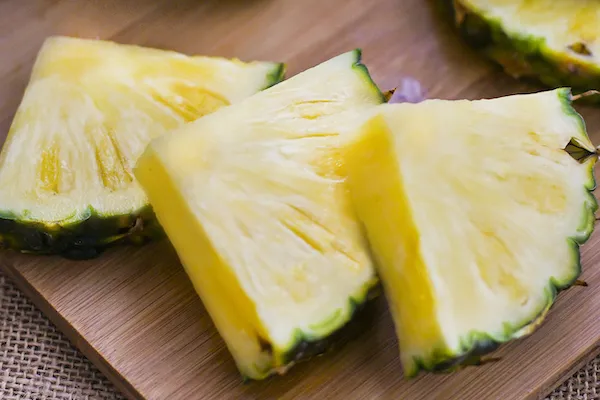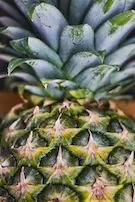China has banned the import of pineapples from Taiwan with the ban having taken effect on March 1st. According to authorities, the ban was instated because of pests found in the pineapples imported from Taiwan. José Pablo Rodríguez, the Regional Director for the Export Promotion Agency of Costa Rica (PROCOMER) in Asia, discusses the implications of this development for the Costa Rican pineapple industry.

Image credit: PROCOMER.
Ban might bring opportunities to Costa Rica
Currently, the main export markets for Costa Rica’s pineapples are North America and Europe, but there have been some exports to China in recent years. “In 2020, Costa Rica exported a little more than USD 900 million to several trading partners, with North America and Europe receiving most of the exported volume,” Rodríguez says, adding: “In the last few years, pineapple growers and exporters from Costa Rica have followed the Chinese market and carried out initial export programs to that market. China isn’t currently a major importer of Costa Rican pineapples but that could change with the recent developments following the Chinese government decision to ban Taiwanese pineapples.”
While it is still too early to tell what the full effects of the ban might be for Costa Rica, they are already seeing some increased demand from China. “The sector has already been approached by Chinese fruit importers following this market development. Chinese pineapple imports from Taiwan stood at USD 66 million in 2019, while China’s total imports of the fruit reached USD 232 million. It seems that a ban like this could likely create a void in the market that could be filled by other trading partners such as Costa Rica. However, we will still have to wait some time to see,” Rodríguez explains.
Price impact in China The ban is decreasing the total pineapple volumes going into China, which could naturally lead to an increase in pricing. Rodríguez says: “It is possible for prices to go up, especially in the coming months due to the ban on Taiwanese pineapples. The demand of fresh pineapples in China grows steadily each year, but this year, with Taiwan out of the market, the total supply will shrink, possibly pushing prices up.” Despite this, however, Rodriguez doesn’t believe that the global market prices will be affected by the ban.
The ban is decreasing the total pineapple volumes going into China, which could naturally lead to an increase in pricing. Rodríguez says: “It is possible for prices to go up, especially in the coming months due to the ban on Taiwanese pineapples. The demand of fresh pineapples in China grows steadily each year, but this year, with Taiwan out of the market, the total supply will shrink, possibly pushing prices up.” Despite this, however, Rodriguez doesn’t believe that the global market prices will be affected by the ban.
Image credit: PROCOMER.
The Export Promotion Agency of Costa Rica (PROCOMER) is the official agency in charge of promoting Costa Rican goods and services internationally. The agency has a Trade Promotion Office in China covering the Asian region.
 For more information:
For more information:
José Pablo Rodríguez
PROCOMER
Tel: +86 021 6103 7298
Email: china@procomer.com
www.procomer.com
